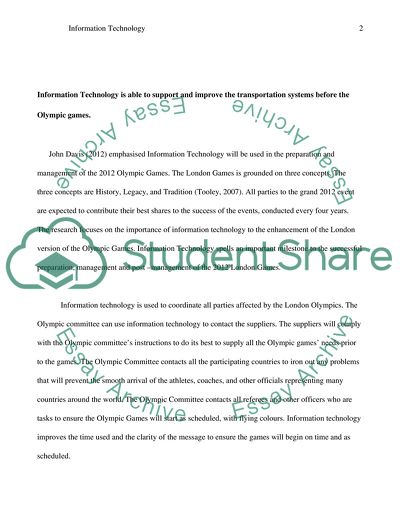Cite this document
(Improvement of the Transportation System in the Olympic Games Essay, n.d.)
Improvement of the Transportation System in the Olympic Games Essay. Retrieved from https://studentshare.org/information-technology/1772031-information-technology
Improvement of the Transportation System in the Olympic Games Essay. Retrieved from https://studentshare.org/information-technology/1772031-information-technology
(Improvement of the Transportation System in the Olympic Games Essay)
Improvement of the Transportation System in the Olympic Games Essay. https://studentshare.org/information-technology/1772031-information-technology.
Improvement of the Transportation System in the Olympic Games Essay. https://studentshare.org/information-technology/1772031-information-technology.
“Improvement of the Transportation System in the Olympic Games Essay”, n.d. https://studentshare.org/information-technology/1772031-information-technology.


